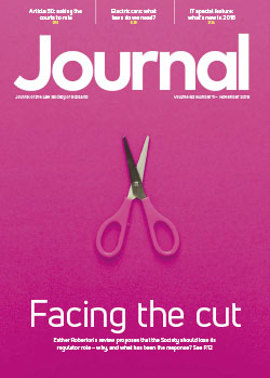Deficiencies of process v disability discrimination
Various types of conduct related to disability are prohibited under the Equality Act 2010. The distinctions are important and still evolving. Practitioners and employers alike should keep themselves up to date.
First, and perhaps most obviously, it is unlawful for an employer to discriminate directly by treating a job applicant or employee “less favourably” than others because of disability. The “less favourably” part of this test means that a disabled person must be able to compare themselves to a real or hypothetical comparator.
Another form of unlawful conduct is discrimination arising from disability. This prohibits “unfavourable treatment” relating to some consequence of the disability. Introducing this new strand in 2010 (claims in respect of less favourable treatment could be brought prior to 2010), the Government stated that it wanted to “re-establish… an appropriate balance between enabling a disabled person to make out a case of experiencing a detriment which arises because of his or her disability, and providing an opportunity for an employer or other person to defend the treatment”. There is no need for an employee to identify a comparator in an unfavourable treatment claim.
It is also unlawful for an employer to discriminate “indirectly” by applying a provision, criterion or practice that disadvantages job applicants or employees with a shared disability, unless the requirement can be objectively justified.
One of the more common claims of disability discrimination against employers is for failure to make reasonable adjustments. Also discriminatory on the grounds of disability are harassment, victimisation and, pre-employment, asking health questions outwith very specific circumstances.
Defective procedures
In Dunn v Secretary of State for Justice [2018] EWCA Civ 1998 (5 September 2018), the Court of Appeal (COA) considered whether a defective ill-health retirement procedure could amount to direct disability discrimination and discrimination arising from disability. The COA considered both the less favourable treatment and the unfavourable treatment tests.
Dunn had been employed by the Ministry of Justice (MOJ) as a prison inspector. He suffered from depression and a heart condition which led him to request ill-health early retirement. Substantial delay ensued, resulting in the application being drawn out for months on end. Dunn brought claims of harassment and direct disability discrimination. The MOJ’s position was that the delay was the result of a failure of its process to manage the filing of papers and the need to obtain medical evidence. It accepted that it had failed to keep Dunn updated or manage his expectations.
At tribunal, two claims of discrimination involving lack of support from Dunn’s line manager and another for the way the application was handled succeeded and Dunn was awarded £100,000. The ET found that the claimant had been treated less favourably as well as unfavourably, and that MOJ’s “arcane and unwieldy system” meant that he was subjected to a detriment and less favourable treatment.
On the MOJ’s appeal, the EAT found that the ET had failed to give consideration to the motivation of the MOJ’s decision makers. It had not analysed whether non-disabled people would have been treated in the same way or considered whether the claimant’s disability was in the minds of the managers who dealt with the elongated process. Ultimately, the evidence did not establish any form of discrimination by the MOJ.
No automatic correlation
On Dunn’s further appeal the COA agreed with the EAT that there had been no disability discrimination. Although the ill-health retirement procedure had been defective, this did not automatically mean it was discriminatory. The “but for being disabled, I would not be in this situation” argument did not constitute direct discrimination. In other words, a process is not automatically discriminatory because the claim involves discrimination. The claimant also has to show that there has been discriminatory motivation on the part of the relevant decision-maker.
The law surrounding discrimination arising from disability is still not entirely settled. Another case has been appealed to the Supreme Court (Williams v Trustees of Swansea University Pension & Assurance Scheme [2017] EWCA Civ 1008) for further guidance on the distinction in legislation between “less favourable” and “unfavourable”.
The COA’s decision in Dunn allows employers to conduct ill-health retirement processes for disabled employees without the concern that administrative problems will automatically give rise to discrimination claims. Having said that, the final word of the COA was that processes like this, which are by definition applied to people who are to a “greater or lesser extent vulnerable”, should be managed without systemic failure and delay. These concluding comments act as a reminder to practitioners and employers to ensure that, wherever possible, policies and procedures should operate in such a way as to avoid, or at least minimise, further stress and anxiety for employees, not add to it.
In this issue
- Salaried but not employed
- Brussels and Brexit: the end of the beginning
- The art of rectification
- Affidavits in family actions: the new practice
- Overseas but under the law
- Share schemes: the key to unlocking business success?
- Reading for pleasure
- Opinion: Laura Connor
- Book reviews
- Profile: Waqqas Ashraf
- President's column
- Ayr-Zetland: the tour continues
- People on the move
- Heading for a split?
- Brexit: a role for judicial review
- Human rights: closing the gap
- Switching on to electric cars
- Excellence in many guises
- Legal IT: from potential to progress
- How to get law firm stakeholders to invest in legal technology
- End of the road
- Deficiencies of process v disability discrimination
- Family lawyers and the sleuth client
- Sending the right message
- Pension transfers: protecting people from themselves
- Scottish Solicitors' Discipline Tribunal
- Missives: the third way
- Variety in squeezed times
- Public policy highlights
- New year, new plan
- Mentoring scheme moves up a level
- Ask Ash
- (Re)Setting the clock – the breeze that caused a storm*
- Paralegal pointers
- The quest for innovation
- Appreciation: Murray Alexander Sinclair






